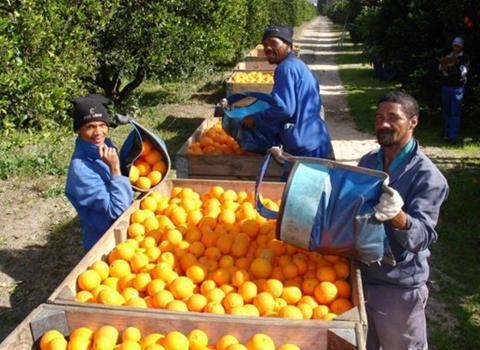The long-awaited actions were announced by the South African government in a late night news release

South Africa has finally launched its dispute with the European Union on phytosanitary trade regulations imposed on its citrus at the World Trade Organization (WTO).
Documents stating South Africa’s case have been delivered to the WTO, a move announced in a late-night media release by the South African government and the Citrus Growers’ Association (CGA)
Fruitnet has learnt that the EU now has one month to respond to a request for consultation.
If the process runs smoothly, it is expected that the dispute will be heard in the second half of the year. It will therefore not affect South Africa’s 2024 export season.
In its media release, the South African government stated that the Department of Agriculture, Land Reform and Rural Development (DALRRD) and the Department of Trade, Industry and Competition (DTIC) have requested consultations with the EU at the WTO.
“This action was initiated to find a lasting solution to the EU’s phytosanitary regulations on citrus black spot (CBS), in order to protect the livelihoods of tens of thousands of people in the local citrus industry,” the statement read.
”The steps taken by the SA government has the support of the Citrus Growers’ Association of Southern Africa (CGA). CBS is a fungal infection that can result in cosmetic blemishes on the affected fruit.”
Despite the world’s leading scientists proving that CBS could not be transmitted through the actual fruit as a pathway, the EU had continued to enforce measures on South African citrus growers, the statement continued.
These measures involved a detailed spray programme and inspections at orchards and packhouses, with significant financial burdens and other unintended consequences for the industry.
Observers said that what was at stake was the R4bn additional cost these measures imposed on South African citrus growers, as well as the fact that those EU measures distorted international trade practices which were ”unfair and unreasonable”.
Thoko Didiza, minister of agriculture, land reform and rural development, highlighted the importance of jobs in the citrus industry.
“Rural economies throughout the country depend on the export of citrus for their income.” She said that the industry could not currently afford the expenditure needed to comply with the EU’s trade restrictive regulations.
Ebrahim Patel, minister of trade, industry and competition, noted that the EU market made up one third of all citrus exports from South Africa and was central to the profitability of the citrus industry.
South Africa’s citrus volumes earmarked for the EU cannot be absorbed by other markets, Patel said.
“The consultations are a critical step in the WTO towards effective resolution of South Africa’s concerns. This follows many years of attempts by South Africa, through good faith engagement, to find a solution to trade-restrictive measures by the EU against South African products.
”It is our view that the measures by the EU are not justified, proportionate or appropriate,” Patel commented.
The CGA welcomed the announcement. CEO Justin Chadwick stated that the industry embraced the government’s actions and was hoping for an efficient resolution of the matter in view that the consultations were initiated as this year’s citrus export season commenced.
Sources said the matter had been dragging on for years and while all would support the government’s action, such matters were not easy to resolve.
There is quiet optimism, but all realise the matter could drag on longer, given the fact that the citrus industry has been requesting these interventions for a number of years.
Chadwick said projections indicated that if all industry stakeholders came together, the industry would be able to produce an additional 100m cartons over the next eight years.
“This can create 100,000 more jobs and generate an additional R20bn in annual revenue, but this potential will surely be lost if the EU market narrows,” he said.
The South African government said the action sought to safeguard an agricultural sector that contributed significantly to the economy.
“The South African government looks forward to constructive consultations with the EU to find an amicable solution,” the statement concluded.



